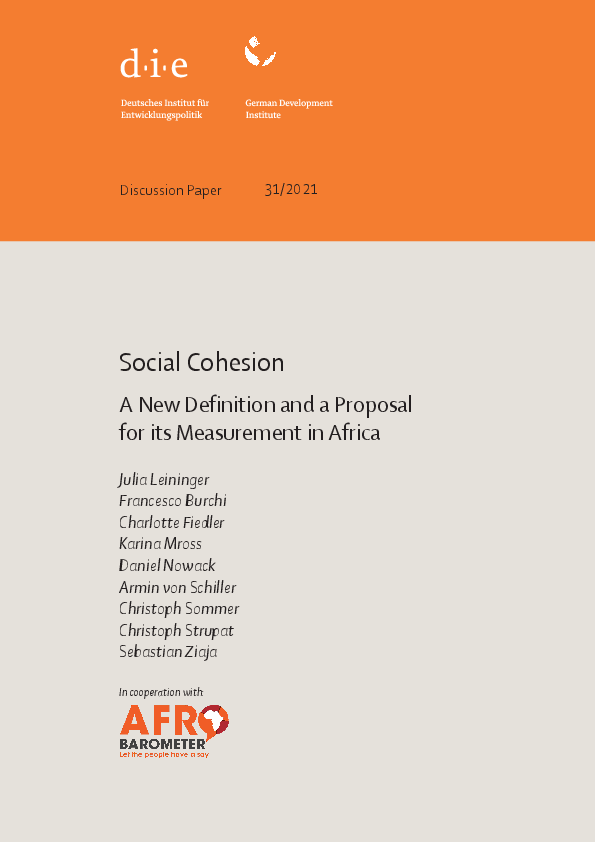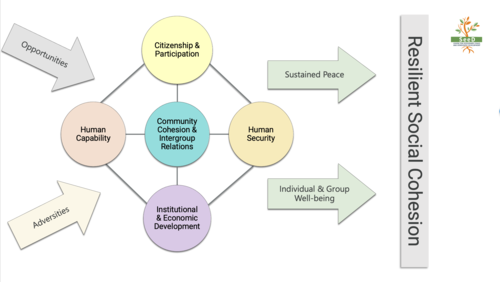Social Cohesion: A New Definition and a Proposal for its Measurement in Africa
Key facts
Orientation towards the common good
Cooperation
Identity/feeling of belonging
Middle East and North Africa
Summary
Social cohesion is key for sustainable development. While social cohesion has suffered in many societies from the consequences of the Covid-19 pandemic, high levels of social cohesion have helped to overcome critical situations during the pandemic in other societies. As a consequence, protecting and strengthening social cohesion has become an increasingly central goal for most countries and the international community. Despite the strong interest in the topic, the questions of how to define social cohesion and make it an observable phenomenon through proper measurement are still contested, in both academia and policy circles. To date, no consistent, temporally and geographically spread-out data on the different elements of social cohesion exists that would allow for a global analysis of social cohesion. This rather fragmented picture of analytical approaches calls for a more universal definition and measurement of social cohesion. This paper aims to provide a narrow and measurable definition of social cohesion that travels across regions and countries. Conceptually, it proposes a definition of social cohesion that incorporates the core elements of existing and widely used definitions of social cohesion across disciplines (trust, identity, cooperation for the common good). Our contribution is to offer a definition of social cohesion that is broad enough to cover the essentials holding societies together while at the same time keeping it lean enough to analyse the causes and consequences of social cohesion, for instance the relationship between social cohesion and inequalities or political institutions. Methodologically, we propose an application of our concept to the African context. It is not only a first step towards a more global and inter-regional measurement of social cohesion, but also the basis for further knowledge-creation, the identification of patterns of social cohesion and the analysis of its causes and consequences. From a policy-oriented perspective, a more unified definition of the core elements of social cohesion and its measurement can inform policies that aim at protecting and fostering social cohesion. In development cooperation, it will help not only to build indicators for designing programme objectives and for evaluation and monitoring, but also to advance evidence-based theories of change.




